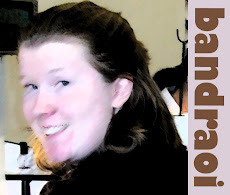A Study of Fairy Tales is a fascinating book that both analyzes fairy tales, and provides very motivating evidence to prove the worth of the fairy tale's presence in early education (kindergarten - 1st grade). The introduction and first chapter of the book are devoted entirely towards establishing the worth of the fairy tale in traditional early educational curriculums, by both providing evidence of their worth in developing character traits and also providing information regarding their value as an art form separate from traditional literature.
One of my favorite quotes from this portion of the book actually is from the Introduction, written by Henry Suzzallo, Ph.D. (then President of the University of Washington):
"The diet of babes cannot be determined by the needs of grown-ups. A spiritual malnutrition which starves would soon set in if adult wisdom were imposed on children for their sustenance. The truth is amply illustrated by those pathetic objects of our acquaintance, the men and women who have never been boys and girls."We all know someone who has suffered from a severe lack of proper stimulation as children - and I fear that many of the kids I know now will also suffer from this. Not from an overabundance of grown-up wisdom forced upon them, but because of the absolute dearth of worthless shows, books, and other falsely stimulating products of our media-driven culture. While there is, of course, inherent value in the (occasional) mindless episode of a NickToon or Cartoon Network feature, they shouldn't be the primary diet of childhood - I think the next 10 years (if not the past 5) will quickly convince us of the lack of moral structure or guidance offered by these empty shells.
By contrast, literature such as traditional fairy tales, and enriching stories not built on easily-merchandisable characters offer kids both the escape they need to keep them stimulated (after all, even us adults can barely stay tuned into the real world anymore), but also gives them a real and unmovable foothold in what is right and wrong, what is worth pursuing and what is worthless, and so on.
::set soap box aside::
Now that I've vented properly, on to Ms. Kready's work.
In the first chapter, she outlines the qualities of fairy tales that make them essential for any child's education. They are:
- Fairy tales bring joy into child life.
- Fairy tales satisfy the play spirit of childhood.
- Fairy tales are play forms.
- Fairy tales give the child a power of accurate observation.
- Fairy tales strengthen the power of emotion, develop the power of imagination, train the memory, and exercise the reason.
- Fairy tales extend and intensify the child's social relations.
- The fairy tale as one form of the story is one part of the largest means to unify the entire work or play of the child.
- Fairy tales employ leisure hours in a way that builds character.
- Fairy tales afford a vital basis for language training and thereby take on a new importance in the child's English.
"Then [after being acquainted with reading through fairy tales] reading will take purpose for him, and be accomplished almost without drill and practically without effort.How better to keep our children interested in real, hearty literature that actually feeds the soul and fuels the heart, than to bring them up on the sweeter and kinder versions of the same?


No comments:
Post a Comment